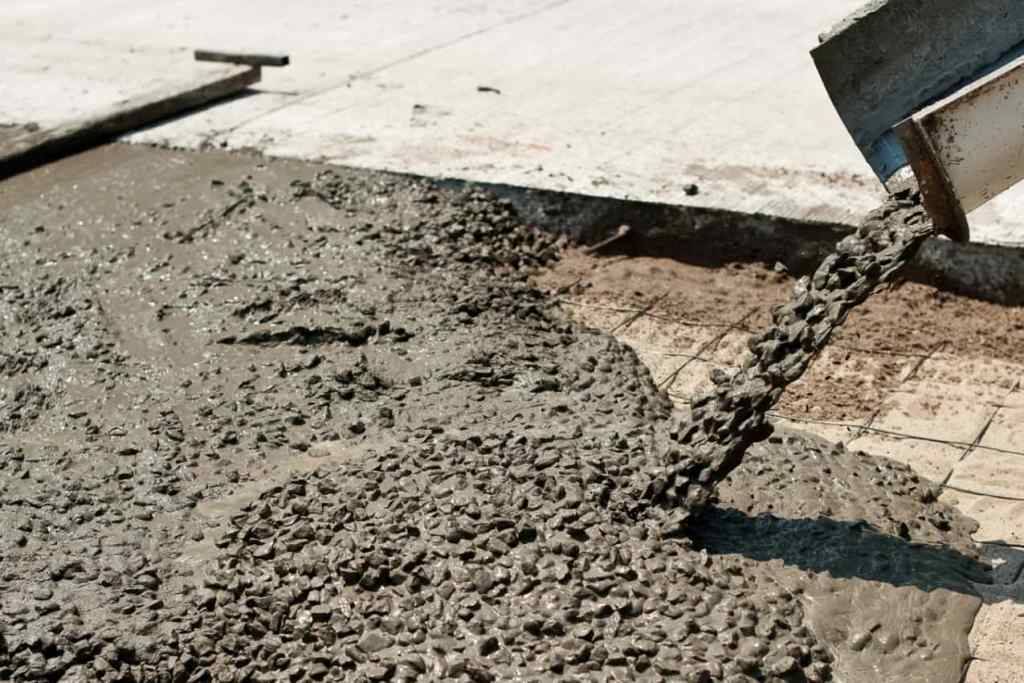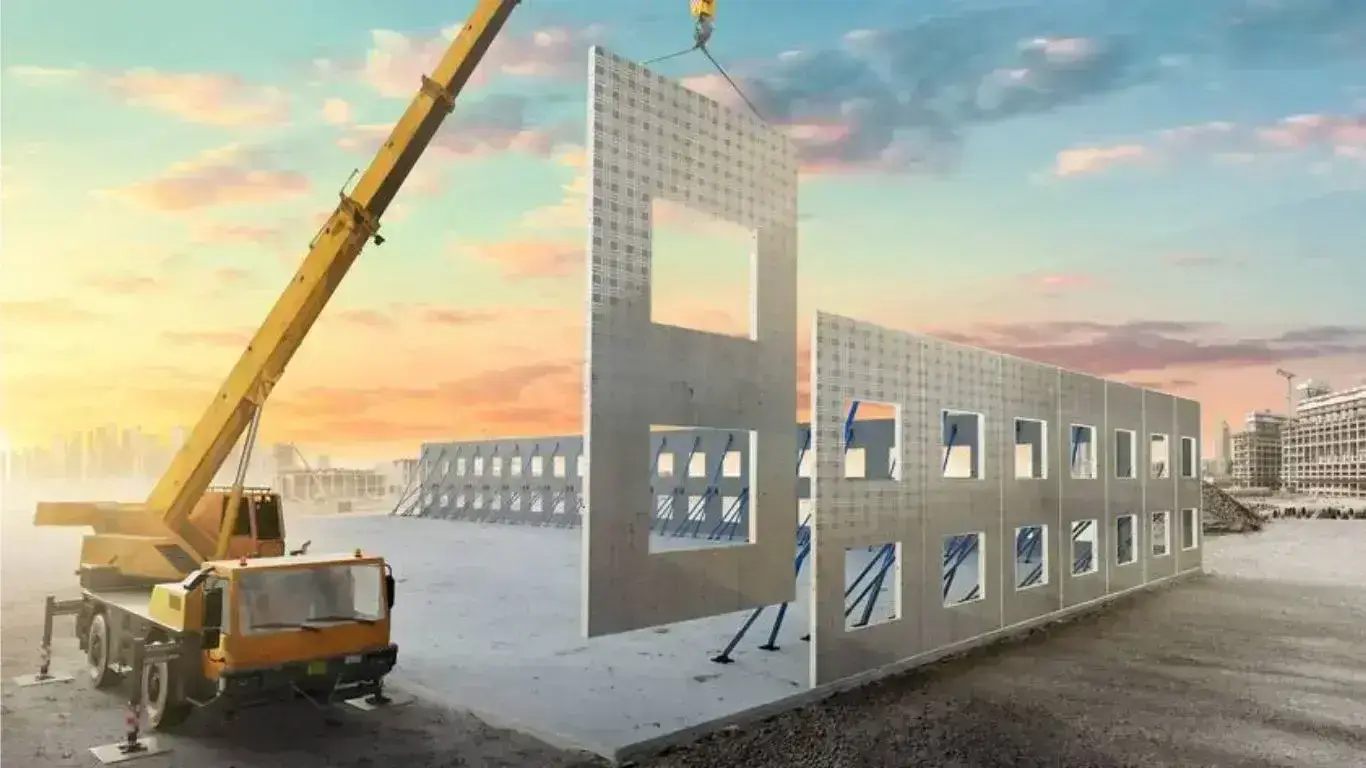Construction chemicals are additives that are used with concrete, cement, and other construction materials to provide additional durability and workability to various structures. The type of chemical to be used depends on the size and nature of the project. Construction chemicals are used to obtain certain desired characteristics in concrete such as high workability, high compressive strength, and high performance and durability parameters to meet the requirement of complexity of modern structures. Construction chemicals provide structures with enhanced bond strength and moisture retention, increased crack resistance of mortar, increased yield with same quantity of construction materials, decreases drying time of mortar and improves appearance.
Advantages of construction chemicals
Durability Enhancement:
Construction chemicals play a crucial role in improving the durability of structures. By incorporating additives into construction materials, these chemicals effectively extend the lifespan of buildings and infrastructure. They contribute to the resistance against wear and tear, ensuring that the constructed elements withstand the test of time. This enhancement in durability not only minimizes the need for frequent maintenance but also promotes sustainable construction practices.
Workability Improvement:
The workability of construction materials, particularly concrete, is significantly improved through the use of construction chemicals. These additives enhance the handling and application of materials, making them more pliable and easier to work with. This improved workability is especially beneficial during construction processes, allowing for more efficient placement and shaping of materials. As a result, construction teams can achieve better precision and consistency in their work.
Environmental Protection:
Construction chemicals contribute to environmental protection by guarding against corrosion and weather-related damage. Corrosion-resistant additives protect structural elements from degradation, reducing the environmental impact associated with premature deterioration. Additionally, these chemicals provide a barrier against harsh weather conditions, preventing water and other environmental factors from compromising the integrity of the construction materials. This protection enhances the overall sustainability of structures.
Efficient Construction Processes:
The incorporation of construction chemicals leads to more efficient construction processes. By accelerating curing times, these chemicals help speed up construction schedules, reducing overall project timelines. This efficiency not only benefits project timelines but also minimizes the risk of construction defects and delays. The construction industry can operate more smoothly and with increased predictability, resulting in cost savings and improved project management.
Strength Augmentation:
Construction chemicals are instrumental in augmenting the strength of construction materials, particularly concrete. Through the introduction of specialized additives, the mechanical properties of these materials are reinforced, leading to increased load-bearing capacity and structural stability. This strength augmentation ensures that the constructed elements can withstand heavy loads and external forces, contributing to the overall safety and reliability of the structure.
Waterproofing:
Waterproofing is a critical aspect of construction, and construction chemicals excel in providing effective solutions. These chemicals create a protective barrier that prevents water infiltration, safeguarding structures from water damage. This is particularly vital in areas prone to heavy rainfall or in structures exposed to water-related challenges. The waterproofing properties of these chemicals enhance the longevity of constructions by mitigating the risks associated with water-induced deterioration.
Sustainability Contribution:
One of the significant contributions of construction chemicals is their role in promoting sustainability within the construction industry. By extending the life of buildings and infrastructure, these chemicals reduce the need for frequent replacements and renovations. This not only conserves resources but also minimizes the environmental impact associated with the construction and demolition processes. In essence, construction chemicals contribute to more sustainable practices by enhancing the longevity and resilience of constructed structures.

Types of construction chemicals
1. Admixtures:
- Plasticizers: These chemicals, when added to concrete mixes, enhance workability by reducing water requirements. They improve the fluidity of the concrete without compromising its strength, making it easier to handle and place during construction.
- Accelerators: Used to expedite the setting and curing processes of concrete, accelerators are especially valuable in cold weather or when a faster construction schedule is required.
- Retarders: In contrast, retarders slow down the setting time of concrete. This is useful in hot weather or large construction projects, allowing for more manageable workability and preventing premature setting.
2. Waterproofing Agents:
- Integral Waterproofing Compounds: These compounds are mixed with concrete during its preparation to make the structure impermeable. They provide an internal barrier against water penetration, enhancing the durability of the construction.
- Surface Waterproofing Coatings: Applied externally, these coatings create a protective layer that prevents water from seeping into the structure, safeguarding it against water-induced damage.
3. Concrete Repair and Protection:
- Concrete Admixtures for Repair: Designed to improve the bonding of repair materials to existing concrete structures, these admixtures enhance the overall durability and longevity of repaired areas.
- Corrosion Inhibitors: Utilized to protect reinforcing steel within concrete from corrosion caused by environmental factors, increasing the lifespan of structures.
4. Sealants and Joint Fillers:
- Polyurethane Sealants: Known for their flexibility and durability, polyurethane sealants are commonly used to seal joints in various construction applications, providing a reliable barrier against water and air infiltration.
- Epoxy Joint Fillers: Offering strong adhesion, epoxy joint fillers are used to fill gaps in joints, ensuring structural integrity and preventing the entry of moisture or debris.
5. Bonding Agents:
- Epoxy Bonding Agents: These agents enhance adhesion between new and existing concrete surfaces, facilitating a strong and durable bond. They are commonly employed in repair and construction projects.
- Polyurethane Bonding Agents: Similar to epoxy agents, polyurethane bonding agents provide strong adhesion for a variety of construction materials, ensuring stability and longevity.
6. Flooring Chemicals:
- Floor Hardeners: Applied to concrete surfaces, floor hardeners enhance strength and abrasion resistance, making floors more durable and suitable for heavy traffic.
- Epoxy Coatings: These coatings provide a durable and chemically resistant finish for floors, commonly used in industrial and commercial settings.
7. Adhesives:
- Construction Adhesives: Designed to bond various construction materials, these adhesives play a crucial role in assembling and securing components in construction projects.
- Tile Adhesives: Specifically formulated for securing tiles to surfaces, ensuring a strong and lasting bond between the tiles and the substrate.
8. Grouts:
- Non-Shrink Grouts: Used to fill gaps and support heavy machinery, non-shrink grouts prevent volume reduction during curing, ensuring structural stability.
- Tile Grouts: Applied between tiles to fill gaps, these grouts enhance the aesthetic appeal of tiled surfaces while preventing water penetration.
9. Surface Treatments:
- Anti-Corrosive Coatings: Applied to steel structures, these coatings protect against corrosion, extending the life of the structure and minimizing maintenance requirements.
- Concrete Surface Retarders: Used to control the setting time of concrete and expose aggregates for decorative finishes, enhancing the visual appeal of the finished surface.
10. Curing Compounds:
- Membrane Curing Compounds: These compounds form a thin film on the concrete surface, retaining moisture during the curing process and promoting proper concrete strength development.
- Water-Based Curing Compounds: Applied to the concrete surface, these compounds assist in the curing process without negatively affecting the properties of the concrete, ensuring optimal strength and durability.

Speciality construction chemicals
Specialty construction chemicals encompass a diverse range of products designed for specific and advanced applications in the construction industry. Here are several types explained in paragraph format:
1. Self-Healing Concrete Admixture: Self-healing concrete incorporates special bacteria or capsules containing healing agents within the concrete mix. When cracks form, these agents are activated, filling and repairing the cracks autonomously. This technology enhances the durability and lifespan of structures by addressing small cracks before they escalate into more significant issues.
2. Fiber-Reinforced Concrete Additives: Fiber-reinforced additives, such as steel, glass, or synthetic fibers, are introduced to concrete mixes to enhance tensile strength and reduce cracking. These additives improve the overall performance of concrete in demanding conditions, providing additional structural integrity and durability.
3. Smart Concrete Admixture: Smart concrete integrates sensors, embedded technologies, and monitoring systems to provide real-time data on the structural health of buildings and infrastructure. These technologies enable early detection of potential issues, allowing for proactive maintenance and ensuring the longevity of structures.
4. Photocatalytic Coatings: Photocatalytic coatings are applied to building surfaces to break down pollutants and contaminants when exposed to sunlight. This technology not only helps maintain the aesthetic appearance of structures but also contributes to environmental sustainability by improving air quality around the construction site.
5. Shape Memory Polymers: Shape memory polymers are used in construction for their ability to "remember" and return to their original shape after deformation. In applications like self-healing materials or flexible construction components, shape memory polymers contribute to increased resilience and adaptability in various construction scenarios.
6. Aerogel Insulation: Aerogel is an ultra-light, highly insulating material that is used in specialty construction chemicals for insulation purposes. It provides exceptional thermal insulation while being lightweight, making it suitable for applications where traditional insulation materials may be impractical.
7. Biodegradable Formwork Release Agents: These environmentally friendly agents are applied to formwork surfaces to prevent adhesion between the formwork and the concrete. Once the concrete is set, the biodegradable release agents break down naturally, reducing environmental impact and simplifying formwork removal.
8. Expansive Concrete Admixtures: Expansive admixtures are designed to induce controlled expansion in concrete. This expansion compensates for volume changes due to factors like temperature variations, preventing cracking and ensuring the long-term integrity of the concrete structure.
9. Low VOC (Volatile Organic Compounds) Sealants and Adhesives: Specialty construction chemicals also include low VOC sealants and adhesives, which emit fewer harmful chemicals into the air during application. This is especially important for indoor construction projects, contributing to healthier indoor air quality and meeting environmental standards.
10. Nano-Scale Construction Materials: Nano-scale materials, such as nano-silica or nano-clay, are incorporated into construction chemicals to enhance the properties of materials like concrete. These nanoparticles contribute to improved strength, durability, and performance at a microscopic level, pushing the boundaries of material science in construction.

Applications of construction chemicals
1. Residential Construction: Construction chemicals are used in residential buildings for applications such as enhancing the strength of concrete, waterproofing foundations, and providing durable flooring solutions.
2. Commercial Construction: In commercial projects, these chemicals contribute to structural stability, aesthetic finishes, and protection against environmental factors, ensuring the longevity of the structures.
3. Industrial Construction: Industrial facilities benefit from construction chemicals by incorporating solutions for heavy-duty flooring, corrosion-resistant coatings, and specialized concrete mixes to withstand industrial processes.
4. Infrastructure Projects: Construction chemicals play a crucial role in infrastructure development, including roads, bridges, and tunnels, by providing solutions for durable concrete, corrosion protection, and waterproofing.
5. Transportation Construction: In transportation infrastructure, such as airports and railway projects, construction chemicals are utilized for runway and track construction, as well as for protective coatings against weather and chemical exposure.
6. Water and Wastewater Treatment Plants: These facilities require specialized construction chemicals for the construction of water tanks, pipelines, and sewage treatment structures, ensuring durability and resistance to corrosive elements.
7. Energy Sector Construction: Construction chemicals are applied in power plants, refineries, and renewable energy projects for structural enhancement, protective coatings, and specialized flooring solutions.
8. Renovation and Restoration: In renovation projects, construction chemicals are employed for repairing and strengthening existing structures. They contribute to the restoration of historical buildings and the preservation of architectural heritage.
9. Sports and Recreational Facilities: Construction chemicals are utilized in the construction of sports stadiums, swimming pools, and recreational areas, providing solutions for durable flooring, waterproofing, and corrosion protection.
10. High-Rise Construction: Tall structures benefit from construction chemicals to enhance the strength of materials, protect against environmental factors, and ensure the structural integrity of the building.

Market potential of construction chemicals
According to a Grand View Research report, The global construction chemicals market size is expected to reach USD 67.61 billion by 2024, according to a new report by Grand View Research, Inc. The global market is estimated to register a CAGR of 6.3% during the forecast period. Rising urbanization, coupled with various infrastructural developments are boosting market growth.

As per, Future Market Insights report, The global demand for the construction chemicals market is anticipated to grow at a CAGR of 6.7% and to be valued at US$ 104.92 billion in 2032, supported by:
- Global infrastructure expansion and consumer demand for innovation
- Rising per capita disposable income influenced the population to invest more in better residential structures and a greater level of living,
- Increasing demand for public, commercial and residential buildings paired with an increasing urban population
The rising overall construction activities worldwide are set to propel the demand for construction chemicals in the future years. The International Finance Corporation (IFC) estimates that green buildings represent significant worldwide investment opportunities in the next ten years, and are anticipated to be worth $24.7 trillion by 2030.
These numbers are projected to surge at a fast pace in the assessment period, thereby boosting the demand for construction chemicals globally. As per this report, demand for construction chemicals is expected to surge at over 6.7% CAGR until 2032. For better growth prospects in the construction industry, many multinational companies have started investing to develop advanced construction chemical products.
As per, Allied Market Research report, The global construction chemicals market was valued at $49.9 billion in 2022, and is projected to reach $88.1 billion by 2032, growing at a CAGR of 6% from 2023 to 2032.
Asia- Pacific and India Construction Chemicals Market Analysis
As per Mordor Intelligence Report, The Asia-Pacific Construction Chemicals Market size is estimated at 39.25 billion USD in 2024, and is expected to reach 59.22 billion USD by 2030 growing at a CAGR of 7.10% during the forecast period (2024-2030). Significantly growing construction projects, growing demand for luxury homes, and optimal adoption of product development in the construction industry, mainly in Asian countries such as China, India, and South-east Asia, are expected to augment the growth of the construction chemicals in the Asian market. Moreover, Asian countries such as India and China have significant growth in the urbanization rate, across the world, which eventually fuels the demand for construction chemicals market. In addition, to strengthen the global footprint across the world key players are following various strategies.

As per Research and Markets report, The India Construction Chemicals Market size is estimated at USD 2.30 billion in 2024, and is expected to reach USD 4.32 billion by 2029, growing at a CAGR of 13.44% during the forecast period (2024-2029).
As per the recent study published by Future Market Insights, India construction chemicals market is valued at US$ 1,617.8 million in 2023 and is projected to have a substantial CAGR of magnitude 13.1% to reach a market valuation of US$ 5,541.8 million by the end of 2033.
As per Persistence Market Research analysis, the India construction chemicals market is projected to reach a market value of US$ 21.6 Bn in 2031, expanding at an impressive CAGR of close to 14% over the forecast period of 2022-2031.

Conclusion
Construction chemicals stand as indispensable allies in the dynamic landscape of the construction industry, contributing significantly to the durability, efficiency, and sustainability of building projects. From enhancing the workability of concrete to providing protection against environmental elements, these chemicals have revolutionized construction practices.
The diverse array of construction chemicals, including admixtures, waterproofing agents, and specialized additives, offer tailored solutions for a wide range of applications. Whether in residential, commercial, or industrial construction, these chemicals play a pivotal role in addressing challenges, improving structural integrity, and extending the lifespan of buildings and infrastructure.
Moreover, the advent of innovative technologies, such as self-healing concrete and smart construction materials, underscores the continual evolution of construction chemicals. These advancements not only improve the performance of structures but also contribute to sustainable construction practices and the overall resilience of the built environment.
As the construction industry continues to evolve and face new challenges, the role of construction chemicals becomes increasingly critical. Embracing these advancements not only ensures the success of individual projects but also paves the way for a more sustainable, efficient, and resilient future in construction. With ongoing research and development, construction chemicals will likely remain at the forefront of innovation, shaping the way we build and maintain structures for generations to come.









.png)